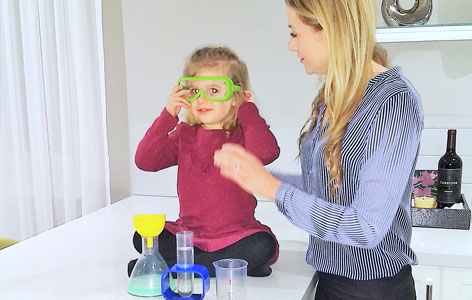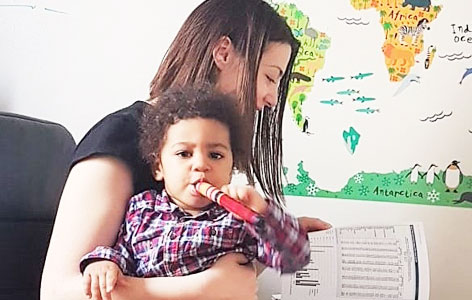
By: Michael Chang, ORT Times Writer
Motherhood during research training can be a challenging yet rewarding experience. Antigona Ulndreaj, a PhD Candidate (Fehlings Lab), and Elena Darmos, a recent PhD graduate (Eubanks Lab), share their experiences of motherhood and research.
What are the challenges of being a new mother during research training, and how did you overcome them?
Antigona: “A major challenge has been setting priorities. When I returned to my PhD studies, I expected to engage in all the activities I was involved in prior to my son’s birth. This was an unrealistic expectation that initially made me feel disappointed. I am now learning that letting go of my favorite activities is sometimes necessary and frankly not as painful as I had initially imagined.”
Elena: “The biggest challenge of being a new mother in science is finding that perfect work-life balance. It is difficult learning how to take care of a new human for the first time, while also keeping up with the fast pace of science. Fortunately, I found the flexibility I needed to balance parenthood and research by having the ability to schedule my own experiments and analyze data at home. As a parent, when you realize and accept that it is impossible to excel in every aspect of your life, every single day, you will stop being so hard on yourself and it will become easier—I promise you.”
What makes someone a successful research trainee during pregnancy, maternity leave or early parenthood?
Antigona: “The key is to plan things well and in advance—from the start of your maternity leave to your return and everything in between. Additionally, talk to other parents who have gone through a similar situation. Be sure to set realistic expectations for yourself, and most importantly, don’t forget to enjoy your child.”
Elena: “Realizing you can still be productive during your pregnancy and maternity leave with careful planning. For example, you can coordinate experiments to be performed by collaborators or research technicians while you are away learning the ropes of motherhood. Most importantly, do not stress about pumping the breaks on productivity during maternity leave; just do your best, try to enjoy the precious moments and make sure to take some time for yourself.”
What does research mean to you now that you are a new mother?
Antigona: “Research is very special to me. For as long as I can remember, it has always represented endless possibilities to make the world a better place. Since becoming a mother, I feel even more strongly than ever about the importance of research in advancing science and technology so we can deliver a better future for the next generation, which my son will be a part of.”
Elena: “Becoming a mother was a salient awakening that I now have the next generation growing in front of me. It made me realize that as a scientist, I also play an important part in contributing to my daughter’s and our future generations’ quality of life.”

Antigona Ulndreaj, a graduate student in Michael Fehlings Lab at the Krembil Research Institute, reading through papers while caring for her toddler.




